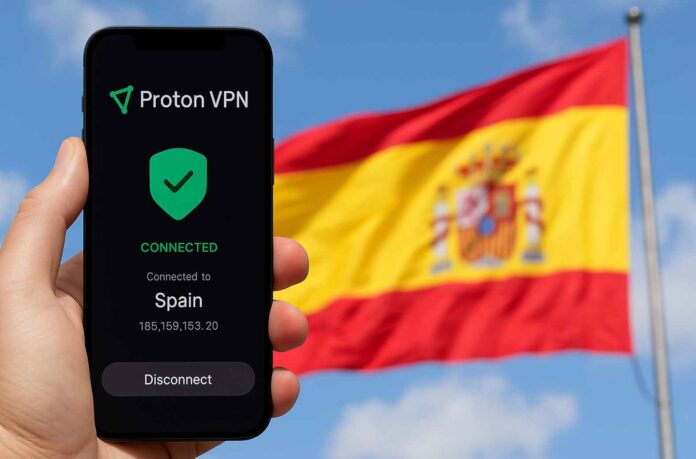- Proton VPN saw a 2,500% surge in sign-ups from Spain.
- The increase followed LaLiga’s new anti-piracy IP blocking orders.
- Legitimate sites and services were affected by overreaching blocks.
- Spaniards turned to VPNs to restore open and unrestricted internet access.
Spain is witnessing a massive rise in VPN use as new anti-piracy laws disrupt regular internet access. Proton VPN, one of the most trusted privacy services, has reported a stunning 2,500 percent increase in sign-ups from Spain. The rise started just after the country began enforcing sweeping online blocks to curb illegal football streaming.
The Swiss-based company shared the news on social media, confirming that its free VPN service had suddenly become a digital lifeline for thousands of users. Many Spaniards are turning to Proton VPN to escape what they describe as unfair internet restrictions that go far beyond their intended targets.
LaLiga’s crackdown sparks collateral damage
The surge in VPN demand is linked to new legal powers granted to LaLiga, Spain’s top football league. Spanish courts have given LaLiga the authority to instruct internet service providers to block IP addresses and domains suspected of hosting or facilitating piracy.
The problem, however, is the scale of the blocking. Instead of targeting only known illegal streaming websites, the new orders also affect entire sections of the internet infrastructure. Dynamic DNS services such as No-IP, which are used by millions of legitimate users worldwide, have also been caught in the crossfire.
For many small business owners and individuals, this means websites, servers, and personal projects that have nothing to do with piracy are suddenly unreachable. The heavy-handed approach has led to frustration and confusion among internet users who rely on these services for everyday tasks.
Everyday users feel the impact
While the goal of fighting piracy might sound justified, the implementation has created widespread disruption. Many ordinary Spaniards say they are being punished for something they never did.
Dynamic DNS, for example, is a useful tool for remote access and self-hosted websites. When an entire provider like No-IP gets blocked, everyone using it loses access, regardless of their purpose. Businesses that rely on remote servers or freelancers managing web projects have been among the hardest hit.
Reports across online forums and social media show users complaining that legitimate websites and apps stopped working overnight. Streaming, remote desktop tools, and even some cloud services have been affected. With few explanations from ISPs or authorities, many turned to VPNs like Proton VPN as the only quick solution.
VPNs become tools of digital freedom
A virtual private network, or VPN, encrypts internet connections and hides users’ real IP addresses by routing traffic through secure servers in other countries. This makes it possible to bypass regional restrictions and censorship.
In Spain, VPNs are now being used by thousands to restore normal internet access. By connecting to a server in another country, users can reach websites and platforms that are now blocked at home. Proton VPN’s free version has become particularly popular for this reason, offering basic protection and open access without a paid subscription.
Privacy experts say this surge in VPN use shows a growing demand for internet freedom. Users want to feel in control of their online experience, not limited by broad government or corporate policies.
A warning against overreach
Tech analysts and internet rights groups have long warned about the dangers of using core internet systems, such as DNS, for censorship. Once a country starts blocking entire services or domains, it becomes difficult to limit the effects.
Spain’s situation highlights how aggressive anti-piracy tactics can unintentionally harm legitimate online activity. Instead of targeting a few illegal platforms, the blocks have disrupted daily life for thousands who have no link to piracy.
Experts fear this could set a dangerous precedent. If Spain continues down this path, other European nations could adopt similar broad blocking systems. This would make VPNs an essential tool not just for privacy but for basic online access.
Growing debate on digital rights
The issue has sparked a wider conversation about how far governments and industries should go to protect content rights. While LaLiga’s motivation to stop piracy is clear, the consequences have shown that such actions can restrict free internet access.
For now, Proton VPN has emerged as one of the biggest beneficiaries of the crackdown. Its sudden popularity in Spain underscores how quickly people react when their access to information is threatened.
The growing use of VPNs suggests that more users value privacy, freedom, and control over their online experience. In an age when digital restrictions are expanding, tools that protect open access are likely to remain in high demand.
Follow TechBSB For More Updates

